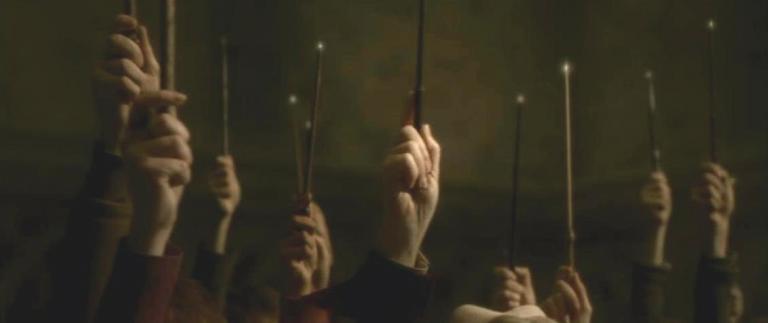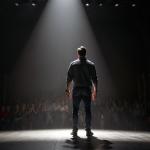I remember seeing it go by in the blur of rage that was election season: a study by a University of Pennsylvania professor found that people who’d read Harry Potter were less likely to vote for Trump.
I guess once you have faced down Lord Voldemort and lived to tell about it, you know a Death Eater when you see one. And also: you are what you read.
The research began as part of a larger study examining how fiction influences opinion and belief. It goes to show how powerfully we are shaped by narrative, both lived and literary. It also goes to show that Harry Potter has become less a series of novels and more part of cultural canon. Some books are not just stories we tell, but the shared lexicon of a generation. Millennials, who were tweens and teens when the books were originally published, technically lay claim to the “Generation Potter” label. But it’s the ones coming up behind them– Gen Z, as I guess we’re calling them now?– who seem to be living into the story. And not just the fantasy story of wizards and wands and magical creatures; but the bigger story of social change and organized resistance against the forces of evil.
Don’t get me wrong, Millennials get a bad rap that is largely undeserved. They are more socially active, in many ways, than their Gen X older siblings (self-identifying here). But all the numbers confirm that this generation, the 20 to early 30-somethings who grew up on technology and toxic public discourse, have largely checked out of the political system. And who can blame? We haven’t left them much worth showing up for. Perhaps their epic levels of disengagement are justified.
But these kids–the ones that marched for gun reform across the country on Saturday– they are showing up. They are showing up en masse, in full force. They are showing up with well-organized rage, and well-articulated demands for action. They are showing up with the real tools of transformation: signs and posters and bullhorns.
Wands up.
I don’t want to overdraw the lines in connecting them with a fictional world. They are their own movement, their own people, emerging from their own context and experience. But as these kids flood the streets and stand in front of cameras and get large groups of adults mobilized in their wake, it’s hard not to see the connection between their real life battle, and the one that raged between the pages of those magical books; books that were literally born in the same years as the leaders of this movement. I can’t help but think they’ve been empowered by the story of the most powerful wizard of all.
As for Harry himself, there was always that lingering question about the root of his power. Was it is own talent that made him great? Or was it the power of his mother’s protective spell, cast like a final blessing over him when she gave up her life for his, covering him for all time with some bit of immortality?
Great works of literature leave some questions unanswered; leave some mystery, some element of unfinished narrative hanging in the air so you’ll want to read it, and tell it, again. We keep going back to our favorite characters and their defining moments because we find some truth of ourselves there, some revelation about the world we live in. After many re-readings of the Harry Potter series, I can tell you a great truth of his strength. It wasn’t just raw talent, and it wasn’t only his mother’s protection; what made him great, in the end, was his refusal to kill. His unwillingness to hurt innocent people, even if the ends justified the means, and his reluctance to use violence–even against those who were trying to hurt him. He was, in many ways, the penultimate model of nonviolent resistance.
No matter how much Harry learned and grew as a wizard, no matter how well-versed he became in the dark arts that could unleash destruction on his enemies–in the end, when his life was in danger, he used a defensive spell rather than one that would kill. It was the disarming spell. The most basic, elementary piece of magic, the very first thing that 11-year-old wizards must learn when they begin their formal training. In the end, that simple incantation to take your enemy’s weapon–I mean wand– was all it took to destroy the Dark Lord and chase his minions back into the shadows.
Maybe it’s just a book. But if he’s the one, however indirectly, to finally lead the movement away from all the chaos and violence and guns, then so be it. I’ll follow him, and these kids, into the dark.
Can one story really do so much to change the world? Even after all this time?
I guess we all know how to answer that:
Always.

















